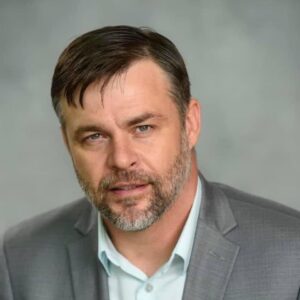Just released: Engineering Biology for Climate & Sustainability: A Research Roadmap for a Cleaner Future
The Engineering Biology Research Consortium (EBRC) is happy to have released our newest technical research roadmap, Engineering Biology for Climate & Sustainability: A Research Roadmap for a Cleaner Future. The roadmap is available as an interactive website and PDF available at https://roadmap.ebrc.org.
This publication highlights innovative solutions and opportunities in engineering biology to support global efforts to tackle the climate crisis, enable sustainable products and solutions, and grow the circular bioeconomy. The technical roadmap addresses the current state of biotechnology for climate change mitigation and adaptation and ecosystem resilience, and lays out goals and short-, medium-, and long-term milestones for the development of engineering biology tools and technologies for a sustainable future.
Supported by funding from the National Science Foundation, the roadmap was written collaboratively by more than 90 contributors across 56 academic institutions, biotechnology companies, government laboratories, and other organizations. The depth and breadth of this expertise is reflected in the diverse landscape of technologies, processes, and products presented in the roadmap for leveraging engineering biology to address our imminent climate crisis while advancing the bioeconomy. As the U.S. seeks to establish and maintain leadership in the global bioeconomy through the Biden Administration’s Executive Order on Advancing Biotechnology and Biomanufacturing Innovation, and through the CHIPS and Science Act of 2022, this roadmap provides a vision of how that dedication and leadership can ultimately benefit all Americans and our global community.
The technical roadmap focuses on novel, foundational engineering biology capabilities for the:
- Biosequestration of Greenhouse Gases
- Mitigation of Environmental Pollution
- Conservation of Ecosystems and Biodiversity
And engineering biology for climate-friendly, sustainable products and solutions for:
- Food & Agriculture
- Transportation & Energy
- Materials Production & Industrial Processes
The roadmap features case studies that explore the social and nontechnical dimensions associated with some of the roadmap’s potential climate solutions. These case studies were selected to support and encourage the incorporation of ethical, economic, political, and security considerations into the design and pursuit of technical research. The questions and considerations illuminated by these case studies highlight the need for technical and nontechnical stakeholders to work together to secure a sustainable future. The roadmap also contains a contextual glossary of terms and concepts.


